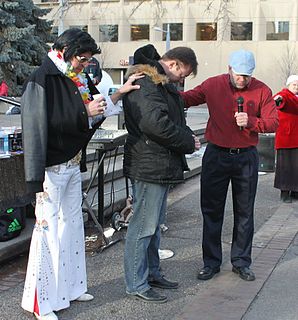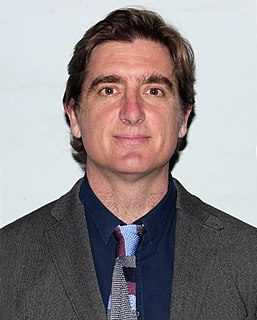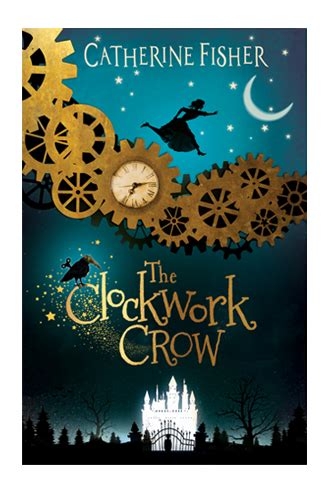A Quote by John Stuart Mill
Human beings are not like sheep; and even sheep are not undistinguishably alike. A man cannot get a coat or a pair oboots to fit him, unless they are either made to his measure, or he has a whole warehouseful to choose from: and is it easier to fit him with a life than with a coat, or are human beings more like one another in their whole physical and spiritual conformation than in the shape of their feet? If it were only that people have diversities of taste, that is reason enough for not attempting to shape them all after one model.
Related Quotes
If it were only that people have diversities of taste, that is reason enough for not attempting to shape them all after one model. But different persons also require different conditions for their spiritual development, and can no more exist healthily in the same moral, than all the varieties of plants can in the same physical, atmosphere and climate.
I think if human beings had genuine courage, they'd wear their costumes every day of the year, not just on Halloween. Wouldn't life be more interesting that way? And now that I think about it, why the heck don't they? Who made the rule that everybody has to dress like sheep 364 days of the year? Think of all the people you'd meet if they were in costume every day. People would be so much easier to talk to - like talking to dogs.
There is a cultural taste which tries very hard to get rid of the lice in a fur coat. There is another which tolerates the lice and thinks the coat can be worn with them in it. And finally there is a taste which regards the lice as the most important thing about the coat and consequently places the coat at the lice's disposal.
I loved my father, but I was not like him. I never needed to believe the best of people. I took them as they were: two-faced, desperate, kind - perhaps all at once. But to Pa, they were all children of god, poor troubled sheep, who only needed love and an even break. He needed the world to back up what his religion told him about people. And when it came down to a choice between reason and faith, he let go of reason.
The profound unity of subjective existence and objective environment leads naturally to the idea that the life-force of one human being can affect other living beings and even the fundamental being of humankind as a whole. Furthermore, the minds of humankind fuse into one and exert a continuous influence, both physical and spiritual, on other living beings and on the whole of nature.
A doctor, like anyone else who has to deal with human beings, each of them unique, cannot be a scientist; he is either, like the surgeon, a craftsman, or, like the physician and the psychologist, an artist. This means that in order to be a good doctor a man must also have a good character, that is to say, whatever weaknesses and foibles he may have, he must love his fellow human beings in the concrete and desire their good before his own.
If idioms are more to be born than to be selected, then the things of life and human nature that a man has grown up with--(not that one man's experience is better than another's, but that it is 'his.')--may give him something better in his substance and manner than an over-long period of superimposed idiomatic education which quite likely doesn't fit his constitution. My father used to say, 'If a poet knows more about a horse than he does about heaven, he might better stick to the horse, and some day the horse may carry him into heaven'
Sheep run to the slaughterhouse, silent and hopeless, but at least sheep never vote for the butcher who kills them or the people who devour them. More beastly than any beast, more sheepish than any sheep, the voter names his own executioner and chooses his own devourer, and for this precious "right" a revolution was fought.
It's not like I was trying to be sexy but I had to get fit because I had to be able to do stunts. Also I wanted that, if Bond took his clothes off, he looked like a man who did what he did, which was kill people for a living. I thought the only way to do that was to work out and get fit and buff and get physically into shape.
Artists use frauds to make human beings seem more wonderful than they really are. Dancers show us human beings who move much more gracefully than human beings really move. Films and books and plays show us people talking much more entertainingly than people really talk, make paltry human enterprises seem important. Singers and musicians show us human beings making sounds far more lovely than human beings really make. Architects give us temples in which something marvelous is obviously going on. Actually, practically nothing is going on.
We're human beings we are - all of us - and that's what people are liable to forget. Human beings don't like peace and goodwill and everybody loving everybody else. However much they may think they do, they don't really because they're not made like that. Human beings love eating and drinking and loving and hating. They also like showing off, grabbing all they can, fighting for their rights and bossing anybody who'll give them half a chance.
All human beings have failings, all human beings have needs and temptations and stresses. Men and women who live together through long years get to know one another's failings; but they also come to know what is worthy of respect and admiration in those they live with and in themselves. If at the end one can say, This man used to the limit the powers that God granted him; he was worthy of love and respect and of the sacrifices of many people, made in order that he might achieve what he deemed to be his task, then that life has been lived well and there are no regrets.








































